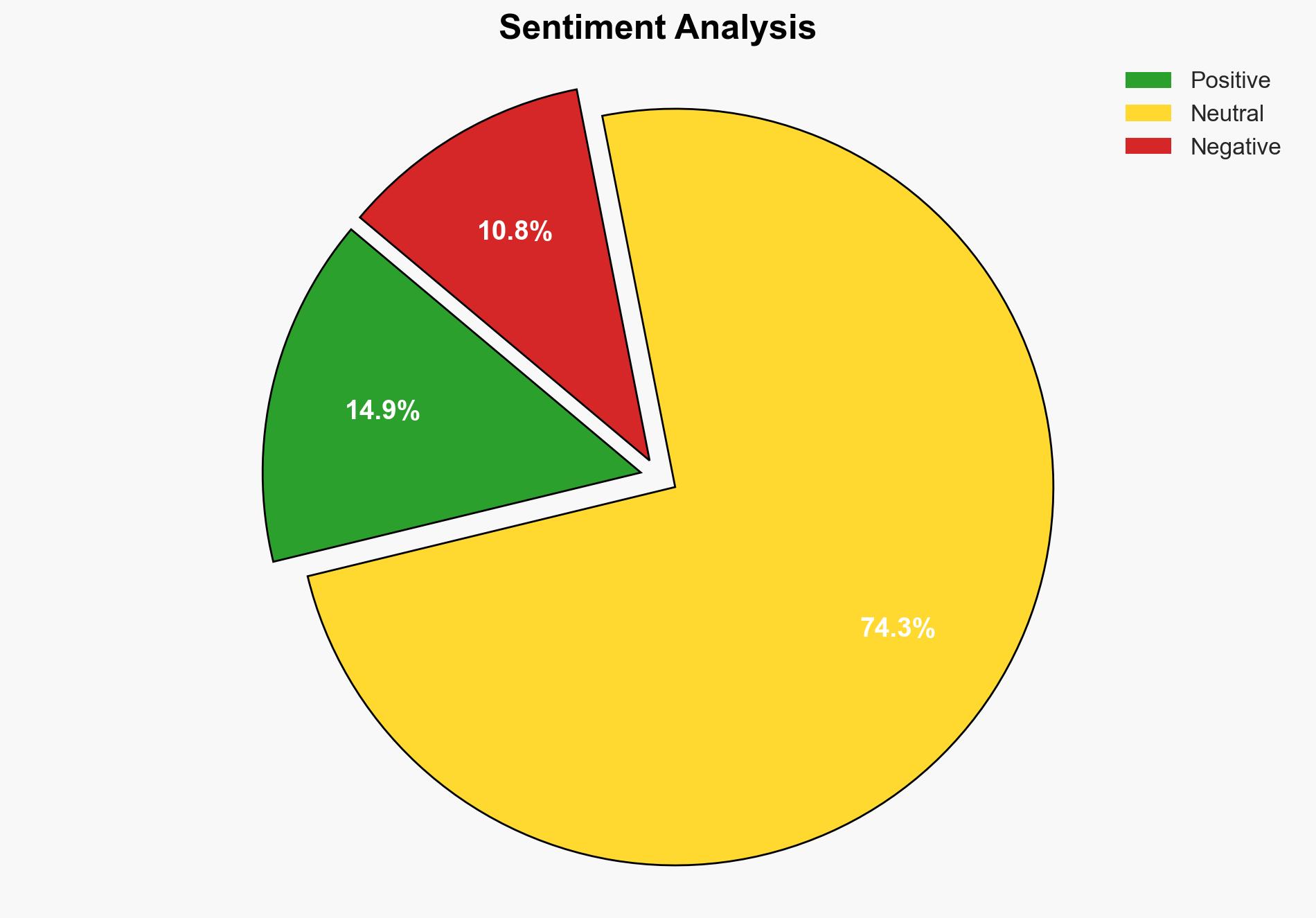An old Android RAT has returned with some new tricks – here is what to look out for – TechRadar
Published on: 2025-03-28
Intelligence Report: An old Android RAT has returned with some new tricks – here is what to look out for – TechRadar
1. BLUF (Bottom Line Up Front)
A new variant of the Android Remote Access Trojan (RAT), known as PJobRAT, has resurfaced, targeting Taiwanese users with enhanced capabilities. This malware can execute shell commands and exfiltrate sensitive data, posing significant cybersecurity threats. Immediate attention and mitigation strategies are recommended to protect vulnerable systems and users.
2. Detailed Analysis
The following structured analytic techniques have been applied for this analysis:
General Analysis
The PJobRAT malware, previously dormant, has re-emerged with advanced functionalities, including the ability to steal SMS messages, phone contacts, and data from applications like WhatsApp. The malware’s capability to run shell commands significantly increases its potential to control infected devices. This variant specifically targets Taiwanese users, indicating a shift in focus from previous campaigns that targeted Indian military personnel. The malware is distributed through typosquatting and spoofing legitimate applications, primarily via compromised WordPress sites.
3. Implications and Strategic Risks
The resurgence of PJobRAT poses several strategic risks:
- National Security: The malware’s ability to exfiltrate sensitive data could compromise national security, particularly if it targets government or military personnel.
- Regional Stability: Targeting Taiwanese users may exacerbate regional tensions, especially if linked to geopolitical adversaries.
- Economic Interests: The potential for data breaches could harm businesses and individuals, leading to financial losses and reputational damage.
4. Recommendations and Outlook
Recommendations:
- Enhance cybersecurity measures by deploying advanced threat detection and response systems.
- Conduct awareness campaigns to educate users about the risks of downloading applications from unverified sources.
- Encourage regulatory bodies to enforce stricter controls on app distribution platforms to prevent malware proliferation.
Outlook:
Best-case scenario: Rapid identification and mitigation efforts limit the spread of PJobRAT, minimizing its impact on targeted users and systems.
Worst-case scenario: The malware spreads widely, leading to significant data breaches and potential geopolitical tensions.
Most likely outcome: Continued targeted attacks with gradual containment as awareness and security measures improve.
5. Key Individuals and Entities
The report mentions Sead as a journalist who provided insights into the malware’s resurgence. The cybersecurity research was conducted by Sophos, which identified the new variant and its capabilities.





